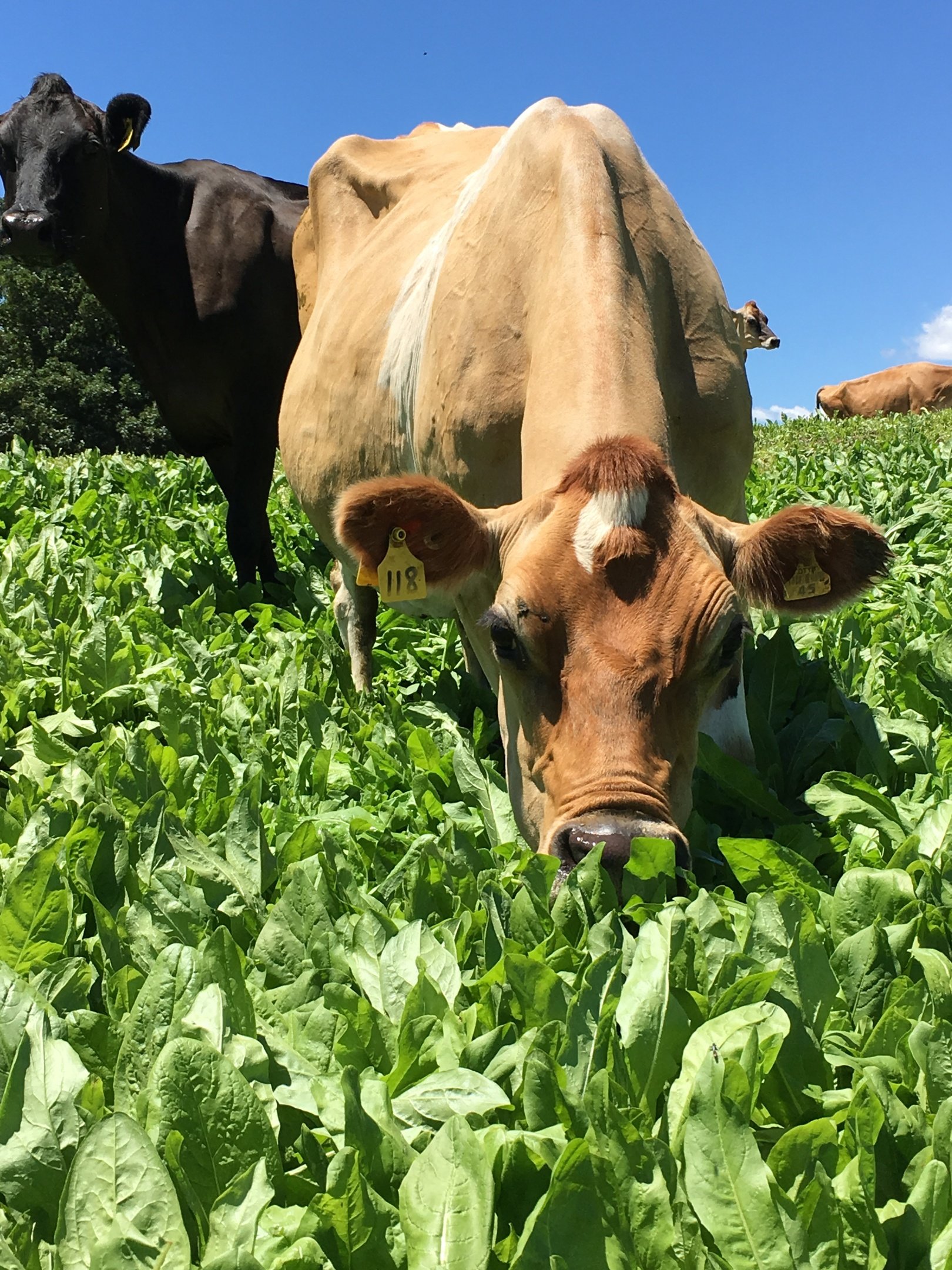Extra grazing is money in the bank
As a green, multi-graze summer feed, chicory has under-rated environmental benefits, and sowing the right chicory can add hundreds to your profit margin.
Several attributes make chicory environmentally friendly, and you can use enhance this further in the way that you use it.
It doesn’t need insecticide sprays (unlike brassicas) and because it is tap-rooted, it is more resilient and water efficient than ryegrass in dry summer conditions.
Chicory's deep roots improve soil structure, mine deep soil nitrogen (N) and pull up other minerals from the soil profile.
It is ideally suited to planting on effluent blocks, because it soaks up both excess N and potassium (K), which are then re-distributed more evenly around the farm via the cows.
Nitrate leaching research has shown heifers grazing chicory urinated more frequently without increasing urinary output or urinary N, potentially reducing N loading and subsequent nitrate leaching from the soil.
At a farm system level, it can be direct drilled or sowed with minimum till, as can be the grass following it, reducing soil N losses compared with full cultivation.
That’s better for fragile soils, too.
Having high yields in summer of green feed, when other paddocks are brown and dry, means less damage to existing pastures from over-grazing, and you save on diesel with less feeding out.
Picking the right chicory cultivar is also important, and can mean as much as $325/ha worth of extra milk for dairy farmers this season.
It’s all to do with a fast start in spring, and high crop yield over summer.
501 Chicory is a more ‘annual’ type, meaning it establishes faster and can be grazed sooner than slower-starting perennial types.
In some cases that early advantage adds up to one full grazing more than other chicory cultivars over summer and autumn.
We’ve measured this dry matter yield difference in trials, and for example, 501 Chicory grew 550 kg DM/ha more than Choice.
Turning the extra DM into milk at a milk price of $6.50/kg MS, this extra DM equates to increased milk production worth $325/ha.
Establishment costs are virtually the same no matter which cultivar is planted.
But as these figures show, simply changing from one to another can add hundreds to the profit margin.


